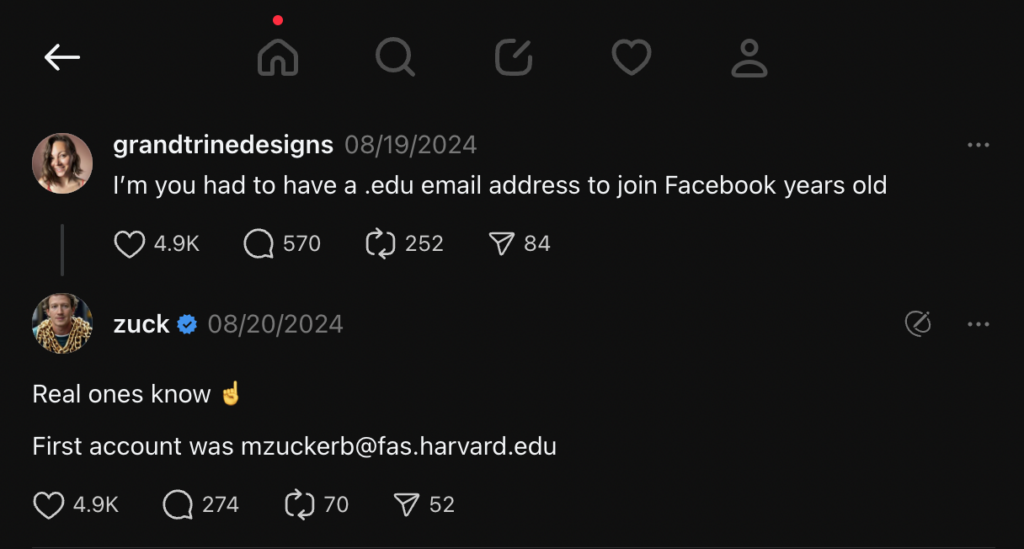The Evolution of Facebook’s Membership Criteria
Earlier this month, Meta Platforms, Inc. CEO Mark Zuckerberg shared the email address he used to create his first Facebook account, evoking a sense of nostalgia among users.
During a conversation on Threads, a social networking platform, on Aug. 20, Zuckerberg revealed the email address he used for his inaugural Facebook account.
“Real ones know. First account was mzuckerb@fas.harvard.edu,” he proudly stated.
This revelation harked back to a time when owning a .edu email address was a prerequisite for Facebook membership, a rule in place when the platform debuted in 2004, initially catering to Harvard University students.
The college email obligation was a gatekeeper measure ensuring that only students from accredited institutions could access the platform, enhancing its allure and exclusivity during its early days.
By 2006, Facebook expanded its membership scope, allowing non-students to join, a pivot away from its initial focus on college attendees.
This expansion was partly propelled by the necessity to accommodate users who had graduated and sought to sustain their connections within the platform.

Facebook’s transition to Meta in 2021 stemmed from Zuckerberg’s ambition to reposition the company beyond its social media roots.
His vision was to establish Meta as a trailblazer in developing the “metaverse,” a concept denoting a shared immersive virtual realm where users can engage within a 3D environment.
Zuckerberg’s Meta currently holds a market capitalization of $1.307 trillion, ranking as the seventh most valuable company globally.
In July, the tech titan reported a second-quarter revenue of $39.07 billion, outstripping analyst predictions of $38.31 billion.
Photo courtesy: Shutterstock
From restrictive .edu domains to a global metaverse dream, the journey of Facebook, now Meta, signifies a transformative odyssey from exclusivity to inclusivity, cultivating a landscape where digital connectivity transcends educational boundaries.